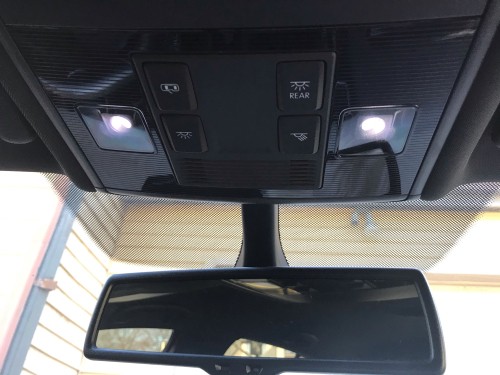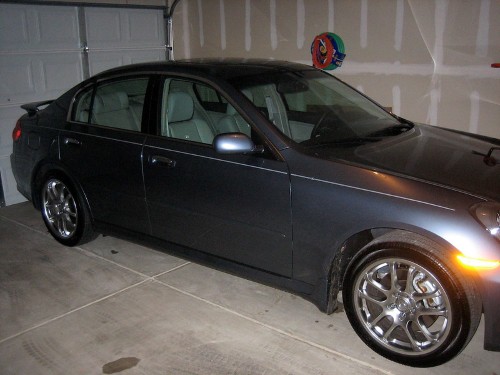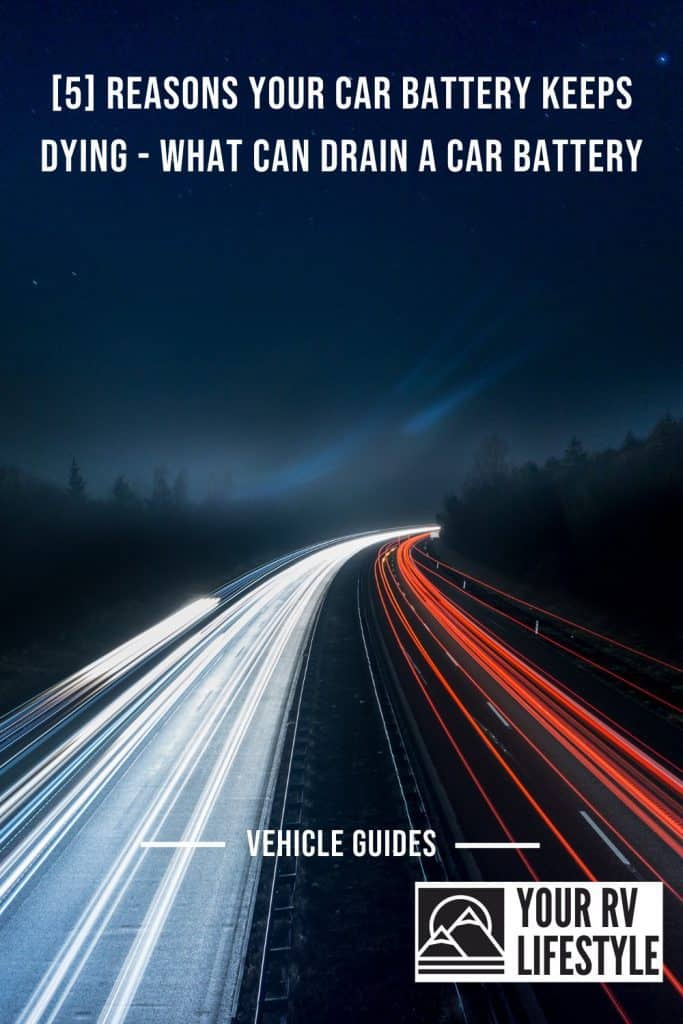Your car battery keeps dying? Determining why your car won’t start can be frustrating. There are dozens of reasons why it may not start, but if you were able to troubleshoot and come to the realization it is a dead battery you will want to know why exactly your car battery keeps dying and what can drain it. Sometimes it can be human error while other times it could be mechanical issues that are not as obvious.
We will discuss the various reasons of what can drain a car battery and how to avoid it. Before we get to that, let’s quickly review what you can do if your battery is dead and you need to get to work or an appointment.
The first and easiest method is through a jump start. This is the process of attaching jumper cables to a healthy battery in another vehicle and running that car while it is attached to your dead battery. It may take several minutes or more to give your car enough power to get your battery charged. If you don’t have another car available there are tools such as a battery charger you can purchase that will act the same as another car’s battery. These tools are known as battery chargers but should not be confused with a battery tender. The main difference is a battery tender is used to maintain the charge in your battery and will not necessarily charge it from being dead, while a battery charger can actually charge it from being completely drained. Battery tenders are a helpful tool to use if you know you will not be driving a car for a long amount of time and want to keep it healthy and charged in the meantime.
No products found.
This is a product that can act as both a battery tender and a charger so it is helpful to have one on hand for those scenarios where you need a jump and are by yourself, or you are winterizing a car or RV.
Ok, now that you have solved the immediate problem and you were able to get to work, it doesn’t mean you are out of the weeds just yet. Just because you were able to start it the first time, does not necessarily mean it will start again, which can honestly be even more annoying than dealing with it the first time. If there are underlying issues with the battery, a jump start can be a one time fix so let’s get into the reasons your car battery keeps dying and what could possibly be draining it.
Old or Weak Battery
Like many other parts on your car, your battery needs to be replaced at some regular cadence. There are many factors to the longevity of your battery, such as usage, quality of the battery, temperature, and so on. Like all other batteries, your car’s won’t last forever so it is helpful to keep in mind how old yours is. Generally speaking, a battery can last upwards of three to five years but this can differ for the above reasons.
Maybe you just bought a used car and found that your battery died within the first couple months. We would suggest asking the previous owner, if you didn’t already do so at the point of purchase, when the last time it was replaced.
If they don’t remember it’s probably a good sign it is pretty old. A battery towards the end of its life will be weaker and may not maintain the charge necessary to power your engine starter. Maybe the battery is newer but it is still weak and doesn’t maintain a charge.
If you allow your battery to die often and have jumped it multiple times it will weaken your battery. So, try to avoid this at all cost if you want to maintain a healthy battery. Of all the reasons your car battery keeps dying this may be the more obvious and easier problems to resolve.
If you aren’t able to determine just how old your battery is there are some ways to help indicate that it’s towards the end of its life. If you notice that your car is slow to start to start and doesn’t catch in the first couple cranks, a weak battery could be the cause. You can also pop open the hood of your car to look at the battery itself. Looking at the battery connectors, are they corroded? If you are seeing white or ashy build up on the terminals it is a good sign it is getting old.
Now that you checked by listening and by looking, let’s give it a smell test. Make sure the car is turned off then take a couple wafts of the battery. Does it smell rotten or almost like bad eggs? This is definitely not a good sign and can indicate it is old or having other issues. Besides these tests there are also tools available that will help you to check the amount of power in your battery. You may not have one of these on hand, but a battery tester is a common tool for a mechanic so if you are going in for your routine maintenance and have a feeling your battery is getting weak, ask them to check it.
No products found.
Buying one of these tools is an easy way to self check your battery and can save you a trip to the mechanic so it could be worth the investment to purchase one and save money on labor costs.
Now that you definitely know the reason your car battery keeps dying is because it’s old or weak, what do you do next? Going to your mechanic is the easy option and they most likely have batteries on hand, but if you are looking to save on the cost of labor, it is actually something you can do by yourself with minimal tools and without spending too much time. Not all cars are the same but for the most part they will follow the same steps.
Human Error
We mentioned that letting your battery die is harmful to its longevity and can overall cause it to become weaker over time, but what are the causes that can drain a battery. Well unfortunately humans are not perfect and after an exhausting day at work or on the road it is very easy for errors or mishaps to happen. Although most cars nowadays have automatic lights, there are still a lot of vehicles on the road that require you to turn on/off your headlights and high-beams. So, if you get home and are in a rush to get your take-out inside for dinner and your hands are full it’s easy to leave your headlights on overnight.
Once again, there are a ton of variables that can affect your battery life, but a brand new and healthy battery could possibly survive the head-lights being left on overnight. This may be just short of a miracle, but I can say from personal experience it is possible. Not something I would ever want to do again though. Here is a gentleman who purposely leaves his lights on and tests it at several time intervals to determine how long is just too long before the battery dies. Spoiler alert, it doesn’t make it overnight. Note that he is using one of the battery testers we mentioned before.
If you think you may have left your headlights on it’s probably a good idea to peak out the window and double check. However, it’s not only your headlights that can drain your battery, it could also be other lights such as your dome light or even trunk lights. Most dome lights have three positions, on, door, and off. Usually we keep them on the ‘door’ setting so every time you open a door the lights turn on so you can grab your belongings.
They only really will stay on for a couple to several minutes before turning themselves off, or closing the door, so if you are doing a scratch off or eating a snack you may switch it to the on position. When in the ‘on’ position the dome light will stay on regardless if the doors are closed. This is very easy to forget about because you can get used to seeing that dome light be on as you’re walking away and it typically turns off by the time you are inside, but if left in the ‘on’ position it will not.
Even a small light like this can drain your battery overnight. Similarly, when opening your trunk there will be accessory lights so you can see clearly. If you don’t close your trunk all the way the lights may be left on which in turn drains the battery.
Most modern-day cars have ditched the older style dome lights and have switches like the example above. However, these lights can still be left on if not unclicked.
Bad Alternator or Charging System
Since your battery uses electricity to initially start your car and helps power the electronics while it is driving, it needs to be recharged during each drive. Unlike a AA battery, your car battery isn’t a one and done type, it is designed to be used and recharged so you can get years of usage out of it. Each car has a charging system that will resupply electricity to the battery while the engine is running. This is why we recommend taking your car on a nice drive after jump-starting it.
The alternator in a vehicle is the main component that generates the electricity to provide back to the battery, so if it is broken or faulty your battery will not be recharging, and as a result your car battery will keep dying. Alternators can last a long time, upwards of 100,000 miles plus, but as always, unforeseen issues can arise or defects in the part can take place.
So, if you go through the trouble of replacing the battery and it still dies, the alternator may be your root cause. Another potential issue of a faulted alternator could be due to bad diodes. Diodes are specific parts to the alternator that converts AC output to DC. Before a mechanic will replace the entire alternator they should check to see if it’s just the diodes that are malfunctioning and replace just those instead.
Beyond the alternator, there are other components of the charging system that may be draining your battery or allowing it to keep dying. A deteriorating belt tensioner or loose belts can keep the alternator from functioning. This is not necessarily an easy thing to diagnose or fix so going to a mechanic can be in order. One good give away of a faulty charging system could be if your battery actually dies while driving. This could be a scary scenario and will most likely require you to get a tow to your mechanic.
Bad alternator! by Mustad Marine / CC BY 2.0
Although an alternator may seem new and not have any obvious signs of wear or tear, there are many components internally that could cause it not to work properly, or at all.
Short Drives
Although this may not be a leading cause, it is a potential reason your car battery keeps dying and what is draining your battery. Now that we reviewed the alternator and know its purpose, it makes sense that taking an excessive number of short drives can begin to drain your battery.
Starting your car requires a reasonable amount of electricity so if you are starting it more than actually driving it, you will slowly begin draining your battery. If you compound this with leaving your lights on as well, then your battery will die even quicker. Maybe you are a delivery person and have five orders of food to make around town.
If you are turning off your car, and leaving your lights on every time you drive to the next neighborhood a mile away you are most likely using more electricity than you are producing via the alternator. It is probably worth it to leave your car running while running up to the door to drop off the package. It may be worth noting this is not that great of an idea if you live in an area with a high amount of car robberies, but I hope that is not the case for our readers.
Even when your car is running and not actually moving the alternator will charge the battery, not at as high of rate but it’s better than nothing. Once again, draining your battery like this is overall bad for its longevity so it should be avoided. Beyond the deterioration of the batter, stopping and starting your car excessively is bad for the wear of your car starter so it could be worth it to use up that extra gas and leave your car running in between quick trips.
Delivery vehicles by Alex Thomson / CC BY 2.0
Many delivery services opt into their drivers using bicycles or motorized mopeds to avoid the cost of gas, wear and tear on vehicles, and overall excessive amounts of short drives in an automobile when a bicycle is sufficient.
Extreme Temperatures
Like most other batteries, extreme temperatures can have an adverse effect on battery life and can be a factor in why your battery keeps dying. Specifically, the extreme cold can be devastating to a weak battery. According to AAA, a car battery sitting at 32°F can lose about 35 percent of its strength and the colder it gets after that, the more strength is lost. This makes it important to test your battery’s health before the winter or a cold front.
Knowing that the cold could be a determining factor in draining your battery you will want to pay even closer attention to our previous reasons during the cold months. Leaving your lights on and taking excessive short drives will only be worse for your battery with temperatures in the near freezing or below. Extreme temperatures can also lead to the accumulation of lead sulfate crystals on the negative electrodes of lead-acid batteries which in turn prevents your battery from charging as well as it should and can shorten battery life.
Living in the south where it doesn’t get this cold does not mean you’re exempt from the effects of extreme temperatures. Extreme heat can also be detrimental to your battery life and will be a factor to why your battery keeps dying. Similar to the cold, the heat can hinder your battery life and drain it faster than if it were in moderate temperature.
The temperature outside, combined with the heat of your engine can get the temperature below your hood up 140°F which at the point will begin to evaporate the fluid in your battery. Beyond that, if a battery gets hot enough it can speed up the deterioration process by corroding some of the internal components. Besides parking in the shade or a garage to avoid direct sunlight, there is not much you can do to avoid the heat so paying close attention to our other four reasons will help keep your battery alive through a heatwave.
G35 in garage by Paul Kehrer / CC BY 2.0
Keeping your car in your garage will not only save you from having to brush off the snow, but will also keep your car at a warmer temperature than sitting outside, and in turn will help your battery keep its charge. If you have an insulated garage, it will generally stay about 20 °F warmer in your garage during the cold months, which is substantial.
Conclusion
Reasons Your Battery Keeps Dying
- Battery is old or weak
- Human error – leaving lights turned on
- Bad Alternator or charging system
- Excessive short drives
- Extreme temperature – near freezing or below and anything above 100°F
How to Prevent
- Keep battery on a tender if you are not going to drive it for a while
- Park your car in an insulated garage during extreme temperatures
- Park your car in the shade to avoid direct sunlight in extreme heat
- Double check to see if you left your highlights or internal lights turned on
- Avoid excessive amounts of short drives
- Don’t let your battery die too often, or at all
- Monitor your battery health with a battery tester
- Keep track of how old your battery is
Batteries can be fickle to say the least, so having tools like a battery tender/charger or battery tester can be helpful to monitor its health and keep it charged. Overall, an old or weak battery will be way more susceptible to continuous dying so keep in mind they typically only have a lifespan of about three to five years. There are dozens of different batteries on the market but we suggest buying ones of higher quality for your car or RV, which in the long run, will help keep your battery from dying.

Jason is a car enthusiast who spends his time writing for Your RV Lifestyle and enjoying the great outdoors in his RV. His greatest pride and joys are his Atlas Airstream motorhome, Volkswagen Golf R and GSX-R750 motorcycle. Although he lives in New Jersey, he finds plenty of farm and back roads to cruise. Jason isn’t afraid to get his hands dirty and is familiar with working on his car and bike to keep them and peak performance.





